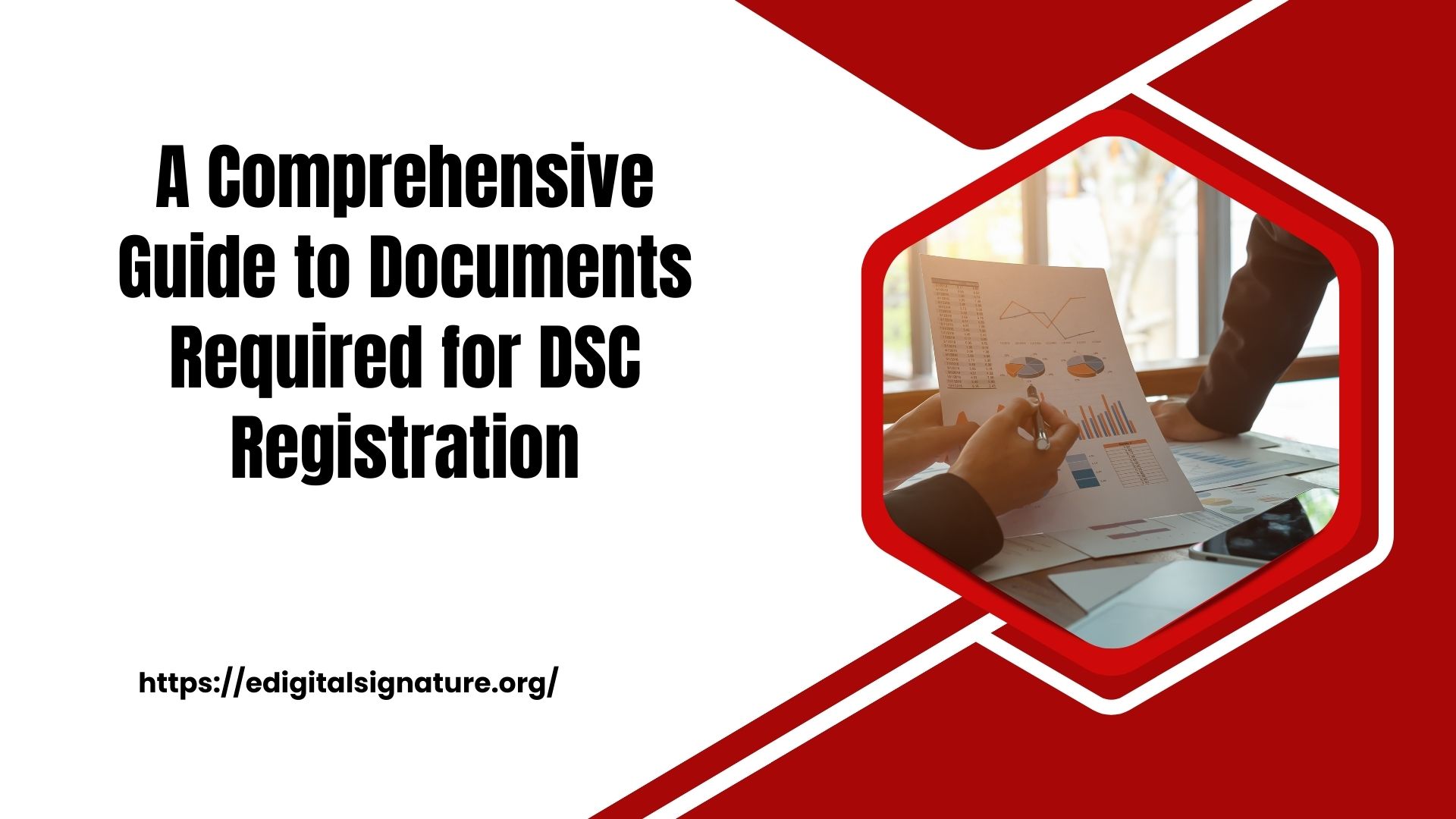Introduction
In the digital age, electronic transactions have become an integral part of business and personal interactions. To ensure the authenticity, security, and integrity of such transactions, Digital Signature Certificates (DSCs) play a vital role. A DSC is an electronic form of a physical signature that is used to authenticate and validate the identity of individuals or organizations in the digital world. Whether you are an individual or a business entity, obtaining a DSC requires a meticulous registration process and a set of essential documents. In this comprehensive guide, we will explore the significance of DSCs and the documents required for their registration.
Understanding Digital Signature Certificates (DSCs)
A Digital Signature Certificate is a digital equivalent of a handwritten signature that authenticates the identity of the signer and ensures the integrity of the signed document. DSCs are issued by Certifying Authorities (CAs) and are used to sign electronic documents such as e-tenders, e-procurement, income tax returns, and various other online transactions.
Types of Digital Signature Certificates
There are three types of DSCs, each serving specific purposes:
Class 1 DSC: This basic level certificate is used for securing email communications and serves to verify that the email is sent by the claimed sender.
Class 2 DSC: This certificate is utilized for filing income tax returns, GST filings, and other statutory requirements. It requires the submission of identity and address proof.
Class 3 DSC: The highest level of certification, Class 3 DSC, is mandatory for participating in e-tendering and e-auction processes. It involves a stringent verification process and requires the submission of additional documents.
Documents Required for DSC Registration
The documents required for DSC registration may vary based on the type of DSC and the applicant’s status (individual or organization). Below is a comprehensive list of the essential documents:
For Individuals:
Identity Proof:
- Aadhar Card
- Passport
- Voter ID
- Driving License
- PAN Card
Address Proof:
- Aadhar Card
- Passport
- Voter ID
- Driving License
- Utility bills (electricity, water, gas) not older than 3 months
Passport-size Photographs: Recent passport-sized photographs of the applicant.
iv. Email Address: A valid and active email address.
v. Mobile Number: A registered mobile number for verification purposes.
For Organizations (Companies, LLPs, Partnerships, etc.):
Certificate of Incorporation: A copy of the certificate of incorporation for companies or registration certificate for LLPs/partnerships.
Memorandum of Association (MOA) and Articles of Association (AOA): The MOA and AOA of the company.
Director/Partner Identification Proof:
- PAN Card
- Aadhar Card
- Passport (in case of foreign nationals)
Director/Partner Address Proof:
- Aadhar Card
- Passport
- Voter ID
- Driving License
- Utility bills (electricity, water, gas) not older than 3 months
Passport-sized Photographs: Recent passport-sized photographs of all directors/partners.
Board Resolution/Partnership Deed: A resolution authorizing the designated person to apply for the DSC.
Email Address: A valid and active email address for the organization.
Mobile Number: A registered mobile number for verification purposes.
DSC Registration Process
Once all the required documents are gathered, the DSC registration process involves the following steps:
Step 1: Choose a Certified Authority (CA): Select a CA authorized by the Controller of Certifying Authorities (CCA) to issue DSCs.
Step 2: DSC Application Form: Fill out the DSC application form, either online or offline, depending on the CA’s procedures.
Step 3: Document Submission: Submit the relevant documents as per the requirements specified by the CA.
Step 4: Identity Verification: Undergo the necessary identity verification procedures, which may include an in-person verification (for Class 3 DSC).
Step 5: DSC Issuance: Upon successful verification, the CA will issue the DSC in a USB token or as a file to be stored securely.
Suggested Read: Class 3 Digital Signature
Conclusion
In conclusion, Digital Signature Certificates (DSCs) are crucial for conducting secure and legally valid online transactions. Understanding the different types of DSCs and the documents required for their registration is essential for a smooth and efficient process. Whether you are an individual or a business entity, adhering to the specified documentation guidelines and following the registration process diligently will help you obtain a DSC that empowers you to engage confidently in the digital landscape.




